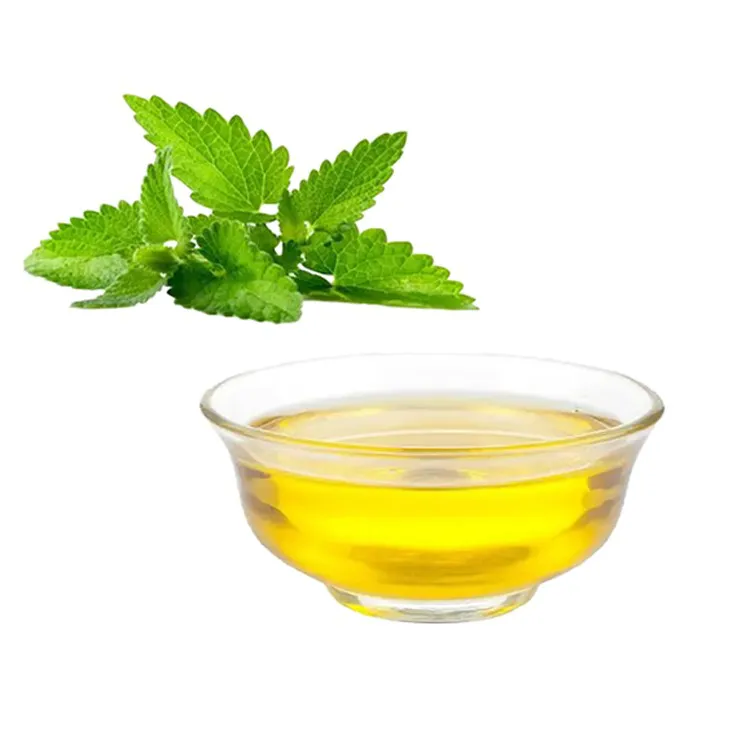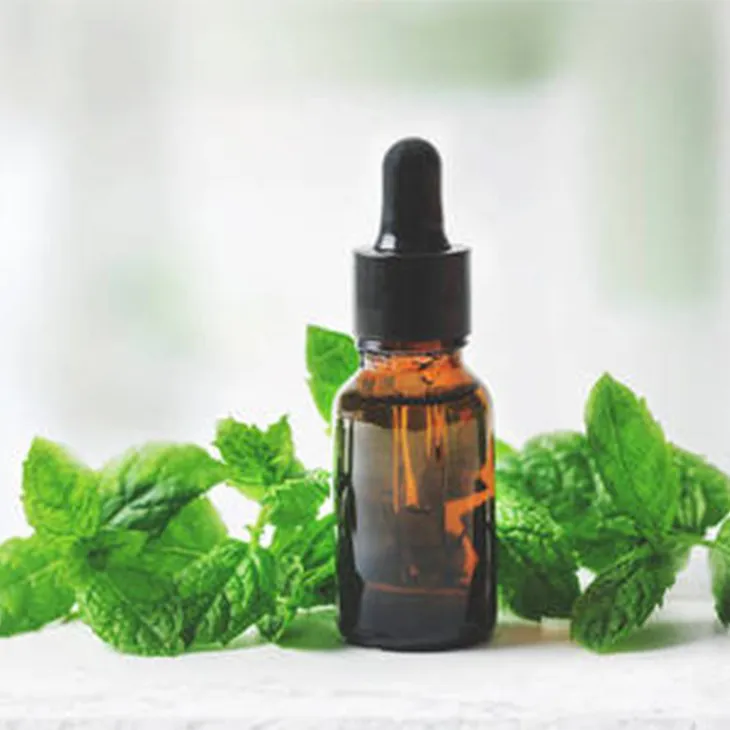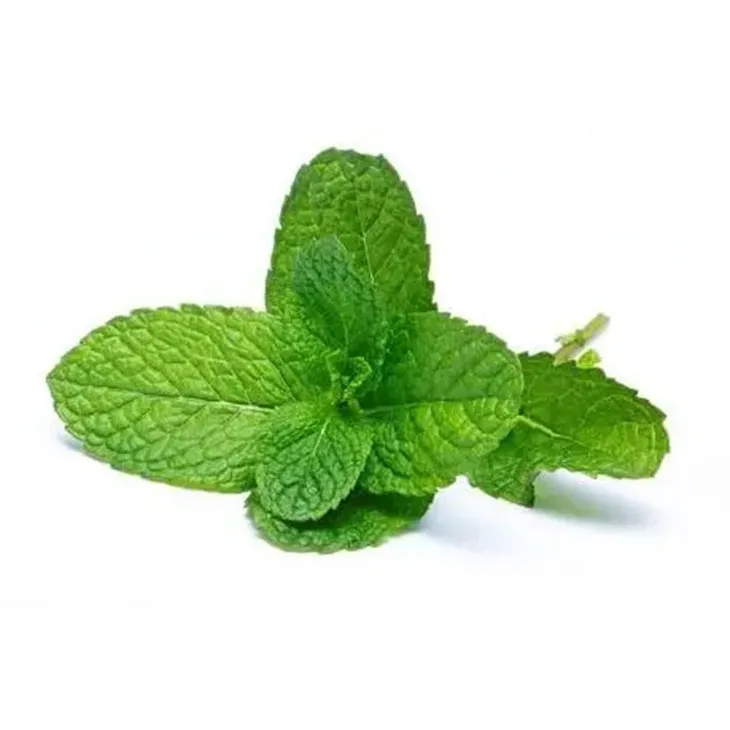- 0086-571-85302990
- sales@greenskybio.com
Have you ever heard of peppermint oil? Five unexpected health benefits.
2024-11-13

Introduction
Peppermint Oil, a powerful natural essence, has been used for centuries in various traditional medicine systems. Derived from the peppermint plant (Mentha × piperita), it contains a rich blend of active compounds such as menthol, menthone, and menthyl acetate. While many people are familiar with its pleasant aroma, few are aware of the surprising health benefits it can offer. In this article, we will explore five unexpected ways in which Peppermint Oil can enhance our well - being.

1. Soothing Digestive Issues
Relieving Indigestion
Peppermint Oil has long been recognized for its ability to alleviate indigestion. The menthol in peppermint oil helps to relax the muscles of the gastrointestinal tract. This relaxation can ease the passage of food through the digestive system, reducing feelings of fullness, bloating, and discomfort. For example, after a large meal, a few drops of peppermint oil diluted in a glass of water can provide relief.Reducing Nausea
Another digestive benefit of peppermint oil is its effectiveness in reducing nausea. Whether it's due to motion sickness, pregnancy, or other factors, peppermint oil can be a natural remedy. The aroma of peppermint has a calming effect on the body, and when inhaled, it can help to settle the stomach. Some people find that using a peppermint - scented inhaler or simply sniffing a handkerchief with a drop of peppermint oil on it can ease nausea.Relieving Irritable Bowel Syndrome (IBS)
IBS is a common digestive disorder characterized by abdominal pain, cramps, and irregular bowel movements. Peppermint oil has shown promise in relieving the symptoms of IBS. It works by relaxing the smooth muscles in the intestines, which can reduce spasms and pain. Studies have found that enteric - coated peppermint oil capsules can be particularly effective in managing IBS symptoms, as they allow the oil to reach the intestines without being broken down in the stomach.
2. Stress Relief
Calming the Nervous System
In today's fast - paced world, stress has become a common problem. Peppermint oil can play a significant role in calming the nervous system. The aroma of peppermint has a cooling and soothing effect on the body, which can help to reduce feelings of anxiety and stress. When inhaled, the scent of peppermint oil can stimulate the olfactory receptors in the nose, which in turn send signals to the brain's limbic system - the area responsible for emotions and memories. This can trigger a relaxation response, helping the body to unwind.Improving Sleep Quality
Stress often leads to sleep problems, and peppermint oil can be a helpful aid in improving sleep quality. By reducing stress and anxiety, it can make it easier for the body to relax and fall asleep. Additionally, the cooling sensation of peppermint oil can be comforting, especially when applied topically to the temples or the back of the neck before bed. Some people also like to add a few drops of peppermint oil to a diffuser in their bedroom to create a relaxing atmosphere conducive to sleep.
3. Enhancing Respiratory Health
Clearing Congestion
Peppermint oil has excellent decongestant properties, making it useful for clearing congestion in the respiratory tract. The menthol in the oil acts as a natural expectorant, helping to break up mucus and phlegm in the lungs and sinuses. When inhaled, it can open up the airways, making breathing easier. This is especially beneficial during colds, flu, or allergies when congestion can be a major discomfort. Using a steam inhalation with peppermint oil - adding a few drops to a bowl of hot water and inhaling the steam - can quickly relieve nasal and chest congestion.Relieving Cough
In addition to clearing congestion, peppermint oil can also be effective in relieving coughs. The cooling and soothing effect of the menthol can help to soothe an irritated throat, reducing the urge to cough. Whether it's a dry cough or a cough with phlegm, peppermint oil can provide some relief. It can be used in a variety of ways, such as in a homemade cough syrup by mixing a few drops with honey and warm water, or by adding it to a chest rub for topical application.
4. Pain Relief
Headache Relief
Peppermint oil can be a natural remedy for headache relief. When applied topically to the temples, forehead, or the back of the neck, the menthol in the oil creates a cooling sensation that can help to ease headache pain. The dilation of blood vessels caused by the menthol may also play a role in reducing the intensity of the headache. Some people find that a simple peppermint oil compress - made by soaking a cloth in water with a few drops of peppermint oil and applying it to the affected area - can be very effective in relieving tension headaches.Muscle Pain and Aches
For those suffering from muscle pain and aches, peppermint oil can offer some relief. The oil has analgesic and anti - inflammatory properties, which can help to reduce pain and inflammation in the muscles. It can be massaged into the sore muscles, providing a cooling and soothing effect. This can be especially useful after exercise or for those with chronic muscle conditions. A blend of peppermint oil with other carrier oils such as coconut oil or olive oil can be used for a more comfortable massage experience.5. Skin Health
Reducing Skin Inflammation
Peppermint oil has anti - inflammatory properties that can be beneficial for skin health, particularly in reducing skin inflammation. It can be used to soothe irritated skin, such as in the case of eczema or dermatitis. However, it should be used with caution as it can be irritating to some skin types in its pure form. Diluting it with a suitable carrier oil, such as jojoba oil or almond oil, is recommended before applying it to the skin.Acne Treatment
The antibacterial properties of peppermint oil make it a potential candidate for acne treatment. It can help to kill the bacteria that contribute to acne breakouts, reducing inflammation and redness. A diluted solution of peppermint oil can be applied to the affected areas of the skin using a cotton swab. However, as with any new skin treatment, it's important to do a patch test first to ensure that there are no adverse reactions.Conclusion
Peppermint oil is truly a remarkable natural remedy with a wide range of health benefits. From soothing digestive issues to relieving stress, enhancing respiratory health, providing pain relief, and even improving skin health, it has much to offer. However, it's important to use it safely and properly. When using peppermint oil internally, make sure it is of high quality and suitable for ingestion. For topical use, always dilute it with a carrier oil to avoid skin irritation. With proper use, peppermint oil can be a valuable addition to your natural health toolkit.
FAQ:
How does peppermint oil soothe digestive issues?
Peppermint oil contains menthol, which has a calming effect on the muscles of the digestive tract. It can help relax the smooth muscles in the intestines, reducing spasms and cramps. This can be particularly beneficial for people with irritable bowel syndrome (IBS) or other digestive disorders. It may also aid in improving digestion by increasing the production of bile, which helps break down fats in the diet.
Can peppermint oil really relieve stress?
Yes, it can. The aroma of peppermint oil has a relaxing effect on the mind. When inhaled, it can stimulate the olfactory nerves, which are connected to the part of the brain that controls emotions. This can help reduce feelings of stress and anxiety. Additionally, some studies suggest that it may also have a mild sedative effect on the body, further promoting relaxation.
How does peppermint oil enhance respiratory health?
Peppermint oil has decongestant properties. When inhaled, it can help clear the nasal passages by reducing inflammation and mucus production. It can also soothe irritated airways, making it easier to breathe. This is especially useful for people with colds, sinus infections, or respiratory allergies.
Is it safe to use peppermint oil?
When used properly, peppermint oil is generally safe for most people. However, it should be diluted before applying to the skin, as undiluted oil can cause irritation. Also, some people may be allergic to peppermint oil, so it's a good idea to do a patch test first. Pregnant women and young children should consult a doctor before using it.
How can one use peppermint oil for its health benefits?
There are several ways to use peppermint oil. It can be inhaled directly from the bottle or by using a diffuser. For skin application, it should be diluted with a carrier oil such as coconut oil or almond oil. It can also be taken orally in the form of capsules, but this should be done under the guidance of a healthcare professional.
Related literature
- The Therapeutic Benefits of Peppermint Oil in Digestive Disorders"
- "Peppermint Oil and Stress Relief: A Review of the Evidence"
- "Respiratory Health and the Role of Peppermint Oil"
- ▶ Hesperidin
- ▶ citrus bioflavonoids
- ▶ plant extract
- ▶ lycopene
- ▶ Diosmin
- ▶ Grape seed extract
- ▶ Sea buckthorn Juice Powder
- ▶ Beetroot powder
- ▶ Hops Extract
- ▶ Artichoke Extract
- ▶ Reishi mushroom extract
- ▶ Astaxanthin
- ▶ Green Tea Extract
- ▶ Curcumin Extract
- ▶ Horse Chestnut Extract
- ▶ Other Problems
- ▶ Boswellia Serrata Extract
- ▶ Resveratrol Extract
- ▶ Marigold Extract
- ▶ Grape Leaf Extract
- ▶ blog3
- ▶ blog4
- ▶ blog5
-
Organic Tongkat Ali extract powder factory.
2024-11-13
-
How to make powder with ashwagandha extract.
2024-11-13
-
Rosehip extract manufacturers from China.
2024-11-13
-
The best cat's claw extract in nature.
2024-11-13
-
Chinese Dandelion Leaf Extract Suppliers.
2024-11-13
-
Epimedium extract powder
2024-11-13
-
Artichoke Extract
2024-11-13
-
Kidney Bean Extract
2024-11-13
-
Sophora Japonica Flower Extract
2024-11-13
-
Coix Seed Extract
2024-11-13
-
Polygonum Cuspidatum Extract
2024-11-13
-
Yellow Pine Extract
2024-11-13
-
Aguaje Extract
2024-11-13
-
Quercetin
2024-11-13
-
Angelica sinensis extract
2024-11-13





















